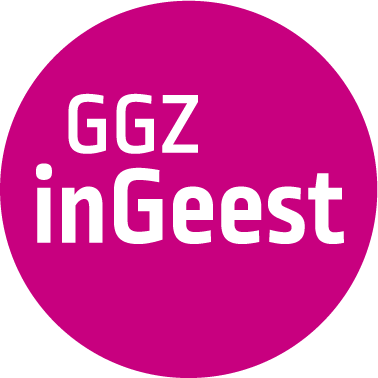Amsterdam Neuroscience has awarded five project proposals from researchers of the department of psychiatry:

Application of machine learning to neuroimaging data (ENIGMA related project).
Moji Aghajani (BI).
The clinical sensitivity, specificity, and validity of neuroimaging in neuropsychiatry remain a major conundrum. Amsterdam Neuroscience has, therefore, awarded a grant (60.000 Euro) to a team of Amsterdam UMC researchers led by Dr. Moji Aghajani (VUmc), who aim to combine rich neuroimaging data with artificial intelligence (i.e., machine learning) for brain-based profiling of neuropsychiatric patients. The main focus of this project is on probabilistic individual-level inferences and stratifications that are data-driven, transdiagnostic, and neurobiologically informed.
Using genomics to examine the causal role of immuno-metabolic alterations in depressive symptoms.
Yuri Milaneschi (CTG).
Our research group has been at the forefront in identifying a subtype of depression that we labelled immuno-metabolic depression (IMD), characterized by symptoms related to energy imbalance such as increased appetite, weight gain, hypersomnia, fatigue, and leaden paralysis. These IMD symptoms are specifically associated with biological alterations in inflammatory and metabolic pathways. A crucial question remains: are these biological alterations causal for the expression of IMD?
This project – emerging from the collaboration of the Department of Psychiatry of Amsterdam UMC (VUMC site: Yuri Milaneschi, Rick Jansen; AMC site: Jorien Treur) – will address this question using genomic analyses and data from large Dutch and International biobanks and consortia. Establishing a causal role for biological alterations in IMD would have relevant implications for precision psychiatry: depressed patients with IMD may be matched to treatment targeting more directly the underlying biological alterations, increasing the likelihood of clinical success.
The thalamus, a gateway to obsessive-compulsive disorder.
Chris Vriend (CIA).
The obsessive-compulsive disorder (OCD) workgroup of ENIGMA (Enhancing Neuro Imaging Genetics Through Meta-Analysis), has previously observed that compared with healthy controls the thalamus is larger in unmedicated pediatric OCD patients. We recently corroborated these findings with data from the Generation R cohort where children with probable OCD also had a larger thalamus. The thalamus is, however, not a uniform structure but consists of multiple subnuclei with their own cortical connections and functions. OCD related enlargement of the total thalamus may therefore be driven by one or a few subnuclei.
This project will investigate whether the previously reported OCD-related thalamic volume enlargement is driven by specific subnuclei by investigating volume differences in thalamic subnuclei between OCD patients and healthy controls using data from the OCD workgroup of ENIGMA.
Effects of stress on brain ageing.
Laura Nawijn (MAPPS).
Psychiatric disorders, such as depression and schizophrenia, have previously been cross-sectionally associated with reduced cortical grey matter and other markers of biological aging. Advanced biological aging may explain part of high comorbidity of aging-related disorders observed in psychiatry, and may be relevant to identify patients at risk. Exposure to chronic stress is a strong predictor of these mental illnesses, and is also suggested to play a role in the observed advanced biological aging. However, whether the accumulation of deleterious stress exposures across the lifespan accelerates brain aging in a longitudinal fashion is currently unknown.
With the Amsterdam Neuroscience grant, we will investigate longitudinal associations between (cumulative) stress exposures and brain aging, to: a) gain insight in transdiagnostic neurobiological mechanisms that may underlie a wide range of stress-related psychopathology, such as depression, anxiety and schizophrenia, and b) whether a novel multivariate brain aging-metric accelerates over time.
Forging new collaborations between VUMC and AMC researchers (VUMC: Laura Nawijn, Laura Han, Moji Aghajani, Femke Lamers, Dick Veltman, Brenda Penninx, AMC: Mirjam van Zuiden, Susanne de Rooij), this project will bring together experts in neurobiology, stress & adversity, psychopathology and brain aging, allowing us to exchange and increase our knowledge and expertise.
A neuroimaging investigation into the role of sleep in the treatment of PTSD.
Hein van Marle (MAPPS).
We know good sleep is essential for processing emotional and possibly even traumatic memories. In this alliance project of Amsterdam Neuroscience, psychiatrist and researcher Hein van Marle and MAPSS partners Miranda Olff and Eus van Someren investigate the role of sleep in an ongoing treatment for post-traumatic stress disorder (PTSD).
By measuring sleep every night with newly developed portable EEG equipment during an intensive 5-day trauma treatment, they provide insight into whether and how treatment success depends on sleeping parameters such as the amount of deep sleep and REM sleep, sleep spindles and REM fragmentation. In addition to generating new targets for (sleep-related) therapy, the project is also a stepping stone to a larger translational application with various MAPSS partners regarding the role of sleep in emotion and trauma processing across psychiatric disorders.




